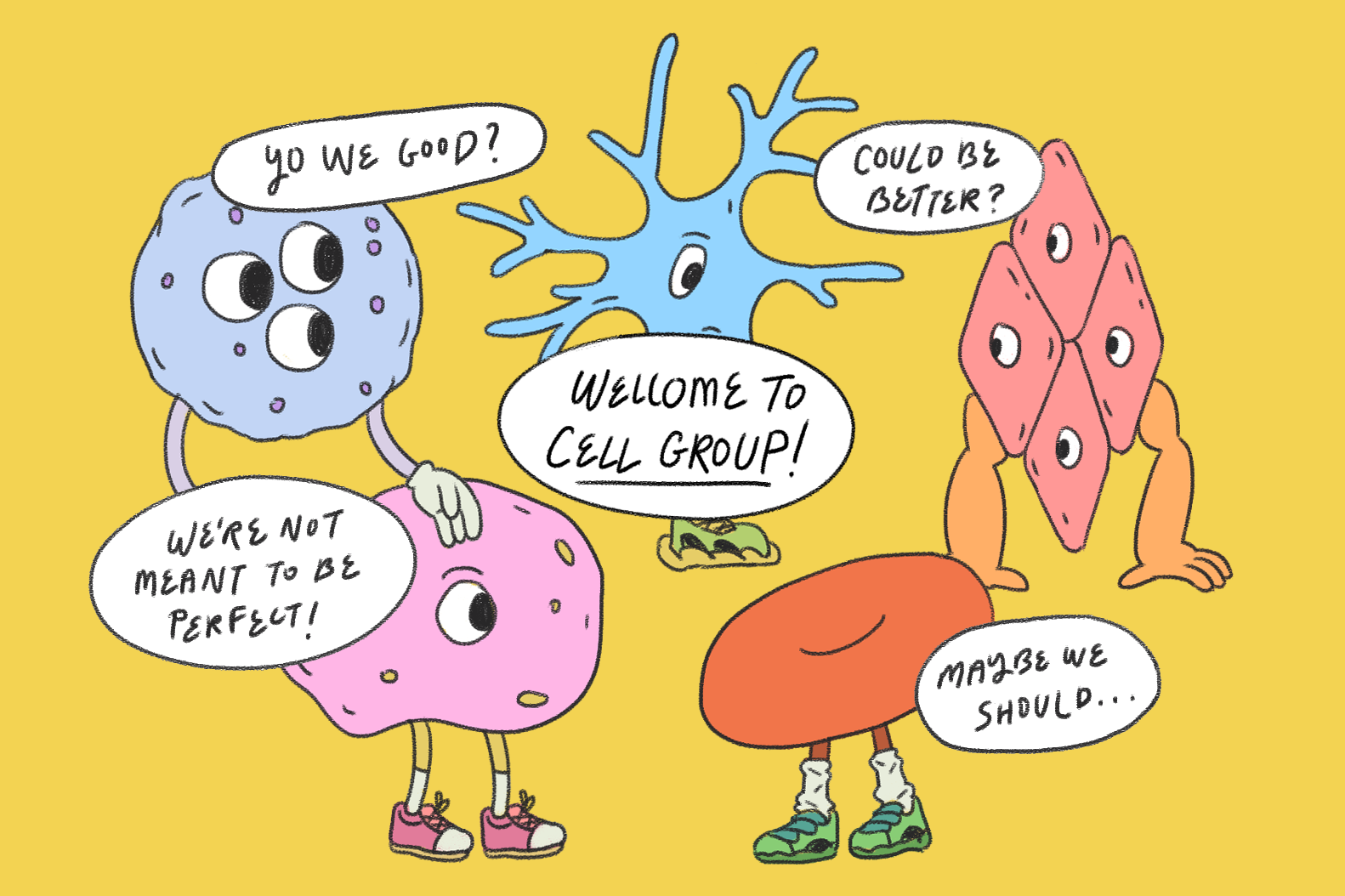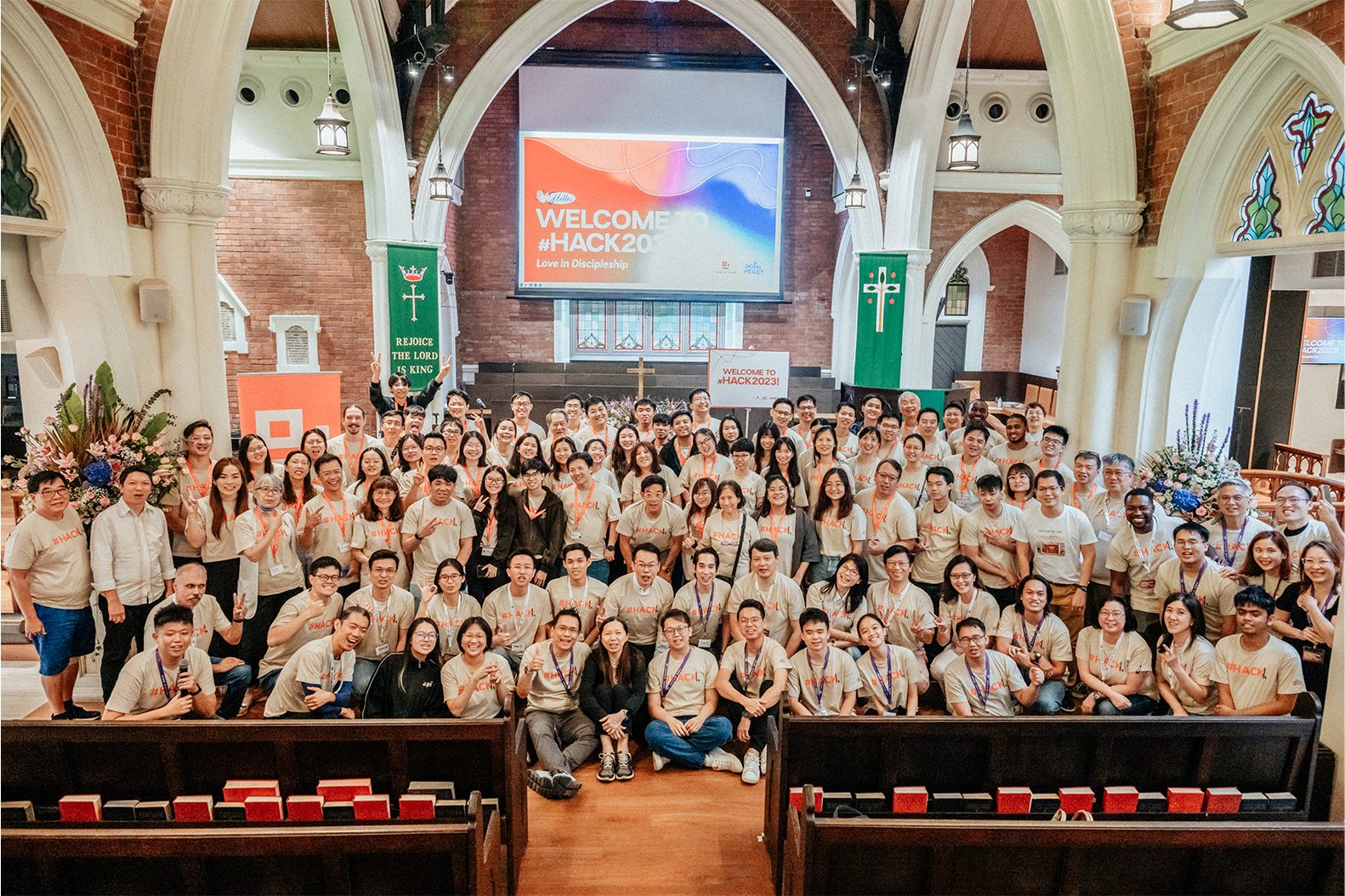Do you think it’s easier to share Christ to someone in your own family or to a stranger?
I’ve encountered many Christians who find it difficult to talk to their family and relatives about Jesus; some would even say that it feels easier to hand out gospel tracts to strangers at an outreach event.
What makes it even more challenging is when you are trying to minister to someone in your family who had fallen out of faith, usually for one (or more) of the following reasons:
- I don’t get why I can’t see people practise what is preached. I don’t see the Christianity you talk about, especially in the church/at home! I’d rather go a different direction.
- I don’t want to follow the faith just because everyone tells me it is good and right. I’ve thought about it for myself, and I’ve walked away!
- My friends don’t follow Jesus and they seem pretty okay, why does it have to be any different for me?
- Respectable authorities in my school find following Jesus “stupid”, why should I continue to follow Jesus?
- I just don’t get it. Why don’t you all struggle in coming to the faith as I do?
If you are reading this and saying: “That’s exactly my family member who had left! What should I do?”, I invite you to read on and pray that God’s Word and wisdom will help us through.
Living with cognitive dissonance
Oftentimes, the closer we are to the person, the harder it is to reach out.
The familiarity of our stubborn habits, the visibility of our failures, especially with prolonged proximity, have often set us back.
This struggle we face — the gap between what we know we should do and what we actually do — is called cognitive dissonance.

Christians often feel inward frustration for not being better. And because it feels horrible and we feel helpless about it, we end up rationalising or avoiding new information that may help us change.
Given our failings, we then feel unqualified to reach out to our family, whom we hurt when we repeatedly fail to be who we say we are and should be.
Perhaps the root of all this is we have failed to practise the principle of confessing our sins to one another, especially within our families.
Now when the person sees cognitive dissonance in their own household and looks outside, where people seem to be more authentic, it’s tempting to say, what the world offers is at least “authentic”, whereas what we have here is clearly wrong, yet often goes unchallenged, unchecked or even white-washed.
Perhaps the root of all this is we have failed to practise the principle of confessing our sins to one another, especially within our families. We feel unsafe to admit that we have not done what we said we were going to do.
In feeling this way, we have lent power to guilt and shame that had already been paid for in the cross, making our interactions in the Christian home more about the destructiveness of sin than the saving grace in Christ.
What can we do to redeem our households from this phenomenon?
The open-kitchen approach
One thing I find fascinating about restaurants with open kitchens is how we get to witness how raw ingredients are transformed into wonderful dishes. We get to watch food prepared in a theatrical manner, though the mistakes also come to light.
When a chef overcooks something in front of us, embarrassing as it is, he has an opportunity to do something a closed kitchen wouldn’t: He gets to own up for his mistake and continue serving the customer.

I believe that we as Christians should live out our Christianity the same way — with the fullness of vulnerability.
Our spiritual lives should not be cooked in kitchens with closed doors, but in an open shared community where our mistakes are also seen in the light of love. In this setup, everyone in the household are givers and receivers of God’s grace.
As Jesus says in Matthew 5:14-16:
“You are the light of the world. A city on a hill cannot be hidden. Neither do people light a lamp and put it under a basket. Instead, they set it on a stand, and it gives light to everyone in the house. In the same way, let your light shine before men, that they may see your good deeds and glorify your Father in heaven.”
I believe this is the way we should live because the way God transforms us from our sinful state to our glorified restored self is a feat to behold!
Indeed it gives more, not less, to the observer to see us go through the painful change to be holy.
To do so, we need to first put down our masks for our own family members to see the true self that struggles and doubts.
This means giving ourselves and each other permission to be astonished, angry with things we do not understand or find hard to accept.
If we are living in pretence with God, we can’t expect ourselves to be authentic with others.

Next is to recognise the truth of how far we have fallen from God’s grace.
As a chaplain, I remember our church intern telling me that what was most impactful for him in our interactions was not when I had much wisdom to give, but when Spirit-given humility enabled me to admit my mistakes and ask for forgiveness for making a wrong decision.
As scary as it was, the grace of knowing we are forgiven and made whole in Christ exceeded the shame that sought to keep me from confessing.
We must allow God’s grace to cover our shame, understanding that God sees us as we are, and waits to restore us when we repent (1 John 1:9-10). This covering of grace is necessary for us to be able to live authentically.
Let us not fall for the lie that Christianity is more about Christians than it is about Christ.
Christ, who is perfect by Himself, is neither disqualified nor qualified by us, so let us trust Him as he changes us from the inside out to witness to our families.
Keep laying out shells to lead them back
Despite this home court disadvantage, we also have a home court advantage that’s often underutilised — prayer.
No other person in the world has God made us to be closer to, to pray and celebrate our lives with as the family He made us to be.
For those of us who have family who have backslidden — how much praying have we done for them?

There’s a scene in the movie Finding Dory, which illustrates an approach I would like to propose.
Dory, the fish with amnesia, had a hard time returning home when she was young. So Dory’s parents had always placed shells in the sand to lead her back home.
After an accident separated Dory from them, the parents, not knowing when or if Dory will return, continued to lay shells from their home outward, in the hope that one day Dory may notice one of these long lines of shells and find her way back.
In the same way, we ought to lay the shells in our lives that point to Christ who is our true home, so that the next generation, with or without spiritual amnesia, may also in their own time be guided back to Jesus.

How do we lay these shells?
Follow Christ faithfully, and demonstrate His love in all that we do.
When we continue in this and persevere in prayer, we will be just like the prodigal father in Jesus’ parable who embodied what it means to let love, not hate or judgement, prepare us for the day of our prodigal loved ones’ return.
Every person in the family is God’s gift to us — be it stubborn parents or rebellious children.
When we learn to see each other not as standards and failures but as brothers and sisters to be redeemed, the truth of Christ will indeed unite us in a deeper love – not born out of our works or will, but of the finished work of Christ on the cross.
I pray that the love of God which overcomes the damage of sin grants us the courage to forgive and be reconciled – for what was lost is now found, what was dead is indeed alive again (Luke 15:11-32).
Let me close with this prayer for ourselves and our families:
Our Heavenly Father, thank you that you grant us the grace of being in families. Though we struggle and we hurt each other, grant us the strength to forgive.
Help us to look to you rather than to each other in the search for truth.
Forgive us when we have made our lives more about ourselves than it is about you; when we have decided to speak more than to listen, to impose more than to reflect.
We pray for those of us who have shut the doors of our hearts from each other because of the pain we may have given or received.
Heal us, and grant us the power to restore our relationships and witness to each other with Your love and light.
Give us the strength to be vulnerable to each other as we seek You and find You together. Bind us together in Your love, O LORD.
In Jesus’ Name we pray, Amen.
This article was first published on YMI and is republished with permission.
- What areas of your life do you need to be more authentic in?
- Who do you need to forgive and be reconciled with?
- Is there anyone in your household who has fallen away from the faith or not yet come to know Jesus? How much praying have you done for them?









